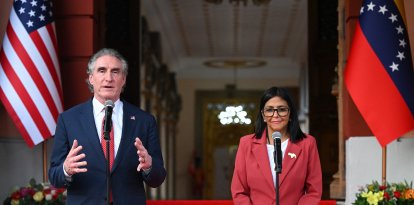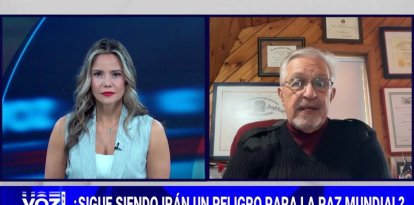Vatican says 'sex change' surgery, surrogacy and gender ideology are threats to human dignity
The statement from the Dicastery for the Doctrine of the Faith entitled "Dignitas Inifinita" ("Infinite Dignity") emphasizes that the church defends respect for one's own body and others and rejects euthanasia and assisted suicide.

El Vaticano | Foto: Cordon Press GALAZKA_2A2R6816/Crédito:Grzegorz Galazka/SIPA/2311031558
The Vatican published Monday a new text dedicated to respect for human dignity in which it condemns abortion, surrogacy and gender ideology. The document points out that "the dignity of the body cannot be considered inferior to that of the person as such. The 'Catechism of the Catholic Church' expressly invites us to recognize that 'the human body shares in the dignity of the image of God.'"
"We are called to protect our humanity, and this means, in the first place, accepting it and respecting it as it was created. It follows that any sex-change intervention, as a rule, risks threatening the unique dignity the person has received from the moment of conception. This is not to exclude the possibility that a person with genital abnormalities that are already evident at birth or that develop later may choose to receive the assistance of healthcare professionals to resolve these abnormalities. However, in this case, such a medical procedure would not constitute a sex change in the sense intended here," says the statement from the Dicastery for the Doctrine of the Faith entitled "Dignitas Infinita" ("Infinite Dignity") that was signed by Pope Francis.
'Respect for both one’s own body and that of others is crucial'
The document also maintained that "respect for both one’s own body and that of others is crucial in light of the proliferation of claims to new rights advanced by gender theory. This ideology 'envisages a society without sexual differences, thereby eliminating the anthropological basis of the family.' It thus becomes unacceptable that 'some ideologies of this sort, which seek to respond to what are at times understandable aspirations, manage to assert themselves as absolute and unquestionable, even dictating how children should be raised.'"
The Vatican defends the dignity of children
The church also took a stand against the practice of surrogacy, whereby the child, immensely worthy, "becomes a mere object":
'Suffering does not cause the sick to lose their dignity'
The church also rejects euthanasia and assisted suicide. The Vatican indicated that this is a " a special case of human dignity violation that is quieter but is swiftly gaining ground. It is unique in how it utilizes a mistaken understanding of human dignity to turn the concept of dignity against life itself. This confusion is particularly evident today in discussions surrounding euthanasia."
The document explained, in this sense, that "the dignity of those who are critically or terminally ill calls for all suitable and necessary efforts to alleviate their suffering through appropriate palliative care and by avoiding aggressive treatments or disproportionate medical procedures. This approach corresponds with the 'enduring responsibility to appreciate the needs of the sick person: care needs, pain relief, and affective and spiritual needs.'"
The document also defends immigrants and other social groups. "Migrants are among the first victims of multiple forms of poverty. Not only is their dignity denied in their home countries, but also their lives are put at risk because they no longer have the means to start a family, to work, or to feed themselves."

























